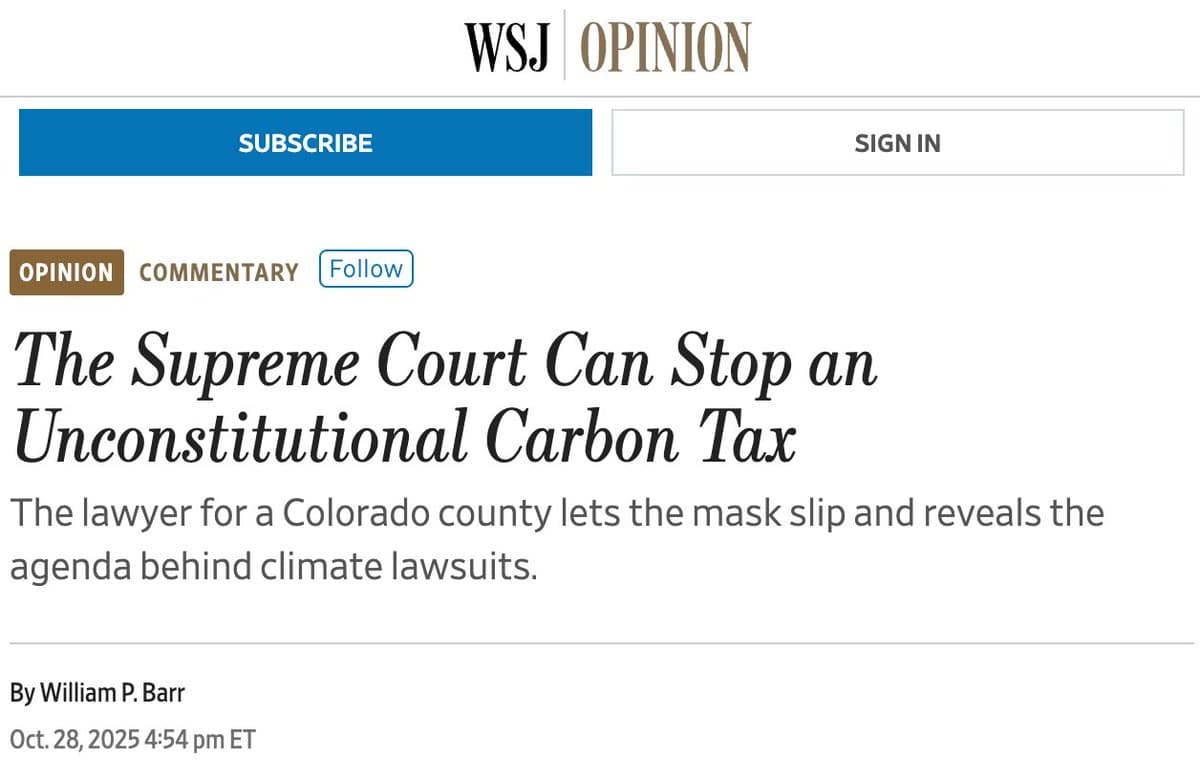Supreme Court Urged to Halt Local Climate Lawsuits as "Insidious Carbon Tax" Advances

Former U.S. Attorney General William P. Barr has called upon the Supreme Court to intervene against what he describes as "insidious carbon tax" advancing through climate-related lawsuits at the county level, primarily targeting American industry. Barr, writing in an opinion piece for The Wall Street Journal, argues that these legal actions represent an overreach of state and local authority, effectively imposing a carbon tax without legislative approval. The Supreme Court now faces an opportunity to address this growing trend of "climate lawfare."
These lawsuits, often filed by states and municipalities, accuse fossil fuel companies of public nuisance, fraud, and consumer protection violations, seeking damages for the impacts of climate change. Over 30 such cases are currently working their way through courts nationwide, with plaintiffs aiming to hold companies accountable for alleged deception regarding climate risks and the costs associated with climate adaptation and infrastructure repairs. Critics of these lawsuits contend they impose significant financial burdens on the energy industry, which could translate to higher costs for consumers.
Fossil fuel companies, supported by conservative legal groups and Republican lawmakers, are actively seeking Supreme Court intervention, arguing that climate change is a national and international issue that falls under federal regulatory authority. The American Enterprise Institute highlights cases like Boulder County v. Suncor Energy, where the Colorado Supreme Court allowed a local lawsuit to proceed, as examples of state courts intruding on federal jurisdiction. These groups argue that allowing local jurisdictions to dictate energy policy through litigation would create a fragmented and unstable regulatory environment.
In response to these state-level actions, the fossil fuel industry and its allies have mounted a coordinated campaign to seek legal immunity and federal preemption. This includes lobbying Congress for liability shields similar to those granted to the gun industry and filing amicus briefs in support of energy companies. The Trump administration, through the Department of Justice, has also actively supported the industry, filing lawsuits against states like Vermont and New York to challenge their "climate superfund" laws, which aim to make polluters pay for climate damages.
The outcome of potential Supreme Court review in cases such as the Boulder lawsuit could significantly impact the future of climate litigation in the United States. Should the Court decide to intervene and rule in favor of federal preemption, legal experts suggest it could effectively halt the proliferation of state and local climate liability cases. Conversely, a decision to allow these cases to proceed would embolden more jurisdictions to pursue damages, potentially reshaping the financial landscape for the energy sector and increasing pressure for climate accountability.